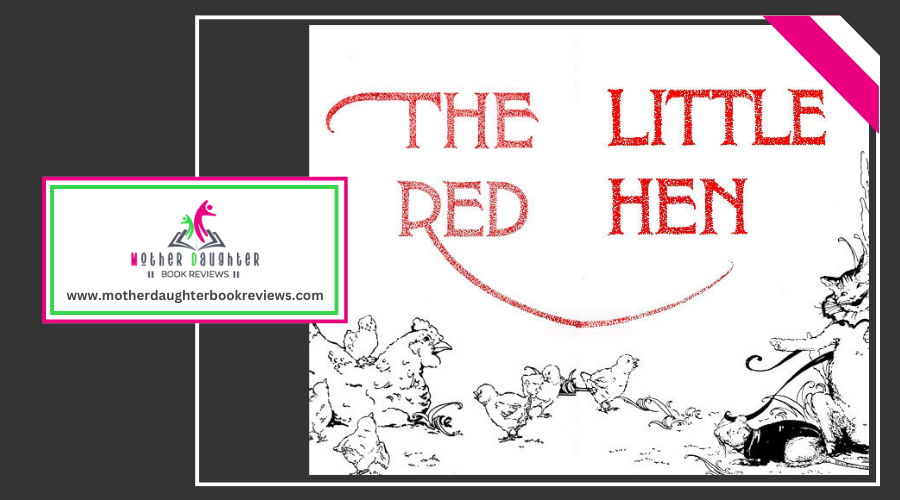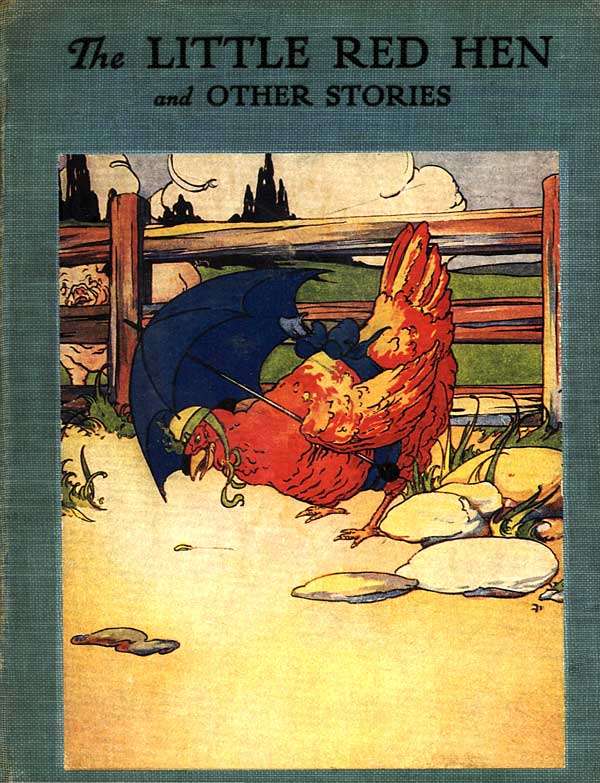Lessons in Responsibility from The Little Red Hen

In the children's classic "The Little Red Hen," you'll learn the importance of hard work and teamwork. The diligent Hen takes charge, planting wheat and baking bread while her lazy friends refuse to help. When the bread is ready, the Hen enjoys it alone, showing the rewards of perseverance and the consequences of laziness. This story highlights the value of taking initiative and the benefits of collaborative effort.
The Story of the Little Red Hen
In the classic tale of the Little Red Hen, you encounter a diligent hen who finds a grain of wheat and decides to plant it. She asks her friends—a lazy cat, a sleepy dog, and a noisy duck—if they'll help her plant the grain. Predictably, they all refuse. Undeterred, the Little Red Hen plants the grain by herself.
As the wheat grows, the hen continues to seek assistance for tasks like watering, harvesting, and grinding the wheat into flour. Each time, her friends decline to help, preferring to lounge around instead. The Little Red Hen persists, completing each task on her own.
When the time comes to bake the bread, she again asks for help, and once more, her friends refuse. Ultimately, after the bread is baked, the aroma fills the air, and the cat, dog, and duck excitedly offer to help eat the bread. This time, the Little Red Hen refuses their help, choosing instead to enjoy the fruits of her labor alone.
Importance of Hard Work
The essence of hard work shines through the story of the Little Red Hen, showing you the undeniable value of diligence and perseverance. When the Little Red Hen finds a grain of wheat, she doesn't hesitate to plant it. She knows that effort and patience can transform a single seed into something much greater. Her determination to see the task through from planting to baking is a demonstration of the power of consistent effort.
You see, hard work isn't just about the immediate tasks at hand. It's about setting goals, committing to them, and following through despite challenges. When the Little Red Hen asks for help and receives none, she doesn't give up. Instead, she rolls up her sleeves and does the work herself. This teaches you that even when others don't support your efforts, your own hard work can still lead to success.
Moreover, the Little Red Hen's story emphasizes that hard work brings tangible rewards. The bread she bakes at the end is not just a loaf; it represents the fruits of her labor. It's a reminder that your efforts, no matter how small they seem, can yield significant results.
Consequences of Laziness
Too often, laziness leads to missed opportunities and regret. When you choose not to take action, you may find yourself watching others reap the benefits of their hard work while you get left behind. The Little Red Hen's story is a perfect example. Here's what you might miss out on if you don't pull your weight:
- Lost Opportunities: By avoiding effort, you can miss out on key chances to learn, grow, and advance. Regardless of it being a project at work or a personal goal, laziness can keep you from seizing moments that matter.
- Damaged Relationships: Consistently relying on others to do the hard work can strain your relationships. Friends, family, and colleagues may become frustrated and less willing to help you in the future.
- Decreased Self-Worth: Laziness can lead to a decline in self-esteem. When you don't contribute, you might start feeling less valuable, which can negatively impact your mental health and outlook on life.
- Long-Term Consequences: Short-term laziness can snowball into long-term issues. Missing deadlines or failing to keep up with responsibilities can have lasting repercussions on your career and personal life.
Value of Perseverance
Choosing to break free from the grip of laziness opens the door to experiencing the true value of perseverance. The Little Red Hen exemplifies this throughout her expedition. When you commit to a task and follow through, even when others don't, you harness the power of perseverance. Each time the hen asked for help with planting, harvesting, and baking, she was met with excuses. Still, she pressed on, showcasing her unwavering determination.
Perseverance isn't just about completing a task; it's about the growth you undergo during the process. By sticking with your goals, you develop resilience and a strong work ethic. The hen's refusal to give up, despite the lack of support, teaches you that persistence pays off. Her diligence led to the reward of fresh bread, a demonstration of her hard work.
Benefits of Teamwork
Imagine accomplishing a task with the combined efforts of a dedicated group. That's the power of teamwork, and it brings numerous benefits that can transform any project. When you work as part of a team, you're not just sharing the workload; you're multiplying the potential for success.
First, teamwork fosters creativity. Different perspectives come together, resulting in groundbreaking solutions that one person alone might never think of.
Second, it improves efficiency. When tasks are divided based on each member's strengths, you get things done faster and with higher quality.
Third, it builds a strong support system. When challenges arise, you have others to lean on, making setbacks easier to overcome.
Fourth, it elevates morale and motivation. Working towards a common goal with others creates a sense of camaraderie and shared purpose that can keep everyone energized and focused.
Sharing Responsibilities
In regard to sharing responsibilities, the importance of clear communication and defined roles can't be overstated. When everyone knows what they need to do, tasks get done more efficiently. Look at the Little Red Hen: she asked her friends for help repeatedly, but they always refused. If they had shared the work, the process of planting, harvesting, and baking would've been quicker and easier.
You've probably faced situations where tasks were unevenly distributed, causing frustration. That's why it's essential to outline roles from the start. If your team knows who's responsible for what, you avoid misunderstandings and guarantee accountability. When delegating tasks, make certain you're clear about expectations and deadlines. This way, everyone knows their role and feels responsible for their part.
Remember to check in regularly. This keeps everyone on track and allows for adjustments if someone's struggling. Open communication fosters a sense of shared purpose and teamwork. By doing this, you create an environment where everyone feels valued and motivated to contribute. The Little Red Hen's story highlights what happens when responsibilities aren't shared, providing a timeless lesson on the value of working together.

Rewards of Diligence
Hard work pays off, and the story of the Little Red Hen underscores this truth vividly. When the Little Red Hen decided to plant wheat, she asked for help from her friends. Each time, they declined, preferring leisure over labor. The Hen's determination and diligence led her to plant, water, harvest, and grind the wheat all by herself.
In the end, her hard work bore fruit, or rather, bread. The freshly baked loaf was a symbol of her persistence and effort. As you reflect on this story, consider these key rewards of diligence:
- Accomplishment: Completing a task through your own efforts gives you a sense of pride and achievement.
- Self-Reliance: By relying on your own abilities, you build confidence and independence.
- Skill Development: Repeated effort in a task hones your skills and improves your expertise.
- Recognition: Hard work doesn't go unnoticed; it often leads to acknowledgment and respect from others.
Embrace the lesson from the Little Red Hen: diligence yields tangible, rewarding results. When you put in the effort, you not only achieve your goals but also gain invaluable personal growth.
Learning From Failure
While the story of the Little Red Hen celebrates the rewards of diligence, it's just as noteworthy to recognize the value in learning from failure. When the other animals refuse to help the Little Red Hen plant, harvest, and bake, they miss out on the delicious bread. This failure to contribute teaches an significant lesson: participation and effort are vital.
You might find yourself in situations where, like the hen's friends, you decline to participate or help. These choices can lead to missed opportunities and regret. However, these moments of failure are not the end; they're learning experiences. By reflecting on what went wrong, you can understand the consequences of inaction and the significance of collaboration.
Failure isn't a dead-end but a stepping stone. It highlights areas for improvement and encourages growth. When you fail, don't dwell on the negative. Instead, analyze what happened and consider how you can do better next time. The Little Red Hen's friends eventually realize their mistake. They learn that their lack of effort results in missed rewards.
Applying Lessons in Life
As you navigate through life, the lessons from stories like the Little Red Hen can serve as valuable guides. By applying these lessons, you can improve both your personal and professional life.
To begin, accept hard work. Just like the Little Red Hen, who did all the work herself when others refused, understand that your effort directly impacts your success.
Second, value teamwork. The hen's story also highlights the importance of collaboration. When everyone pitches in, tasks become more manageable and rewarding.
Third, take initiative. Don't wait for others to start; if you see something that needs to be done, take the lead.
Fourth, practice fairness. The Little Red Hen's decision to enjoy the fruits of her labor alone wasn't about being selfish; it was a lesson in earning your rewards.
Final Thoughts
The Little Red Hen offers timeless lessons in responsibility, hard work, and the value of teamwork. Through the diligent efforts of the hen, you learn that perseverance leads to well-deserved rewards, while laziness and refusal to contribute result in missed opportunities. The story reminds you of the importance of sharing responsibilities, taking initiative, and working collaboratively for mutual benefit. Whether it’s in your personal or professional life, these principles help create a more productive, fair, and supportive environment.




